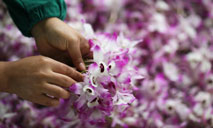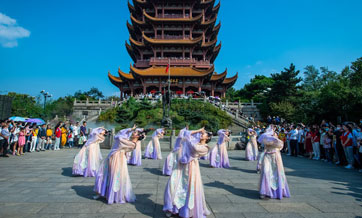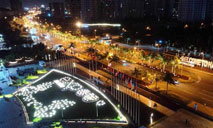"Always the truth," says French writer in virtual encounter with e-celebrities from China's Xinjiang
-- Vivas said that some Western media outlets have made up lies, maliciously discredited Xinjiang, and used propaganda as a weapon to hinder China's progress.
-- "The job of journalists is to reflect realities, whereas in the West, their job is to lie," lamented the veteran journalist. "If I have any advice for you, it is to reveal the truth, always the truth and nothing but the truth."
-- "I have visited a lot of countries and regions, but I have not seen such rapid development," Vivas said, noting that Xinjiang's development and progress over the past two years is quite obvious.
BEIJING, May 7 (Xinhua) -- "There was a media rampage against me, but not against my book on Xinjiang," French writer Maxime Vivas has said during a video dialogue with e-celebrities from Xinjiang.
Having visited Xinjiang "from one end to the other" and "seen a lot of things" during his trips, Vivas recounted what he saw in a book entitled "Uygurs, to put an end to fake news," which was published in France last December.
SMEARING XINJIANG TO HINDER CHINA'S DEVELOPMENT
"Why the Western media never question the testimony about Xinjiang," asked Aytunam Ablikim, a vlogger from south Xinjiang's Hotan City. A vlog of her and her mother making a dress in a tailoring shop has been described as "forced sewing" by Western media.
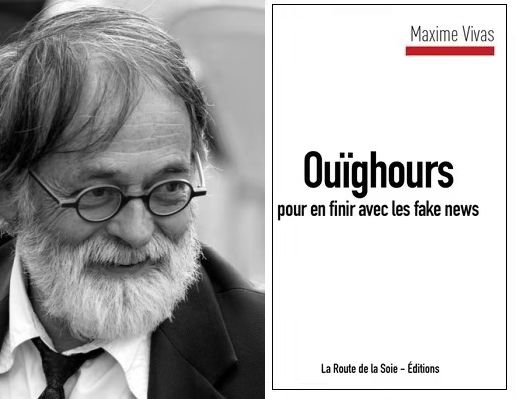
This undated combo photo shows French writer Maxime Vivas and the French edition of his book "Uygurs, to put an end to fake news". (Xinhua)
Vivas said that some Western media outlets have made up lies, maliciously discredited Xinjiang, and used propaganda as a weapon to hinder China's progress.
"I visited factories, schools, and farms (in Xinjiang). I saw a huge difference between what I saw there and what the French media said," answered the 79-year-old author.
"Media talk a lot about Xinjiang, but a lot of French people know nothing about it, (they) don't even know its captial city," Vivas said, adding that before he visited Xinjiang, he knew little about it.
Noting that in the media battle, the truth always lags behind the lie, he warned that "you just have to be patient and above all never let yourself go down to their level."
"Over time, we'll win" and the truth will come out, the writer said, adding that some intellectuals are starting to dismantle the lie of genocide in Xinjiang.
Jeffrey D. Sachs, director of the Center for Sustainable Development at Columbia University, and William Schabas, professor of Law at Middlesex University, London, recently published an article "The Xinjiang Genocide Allegations Are Unjustified" on Project Syndicate.
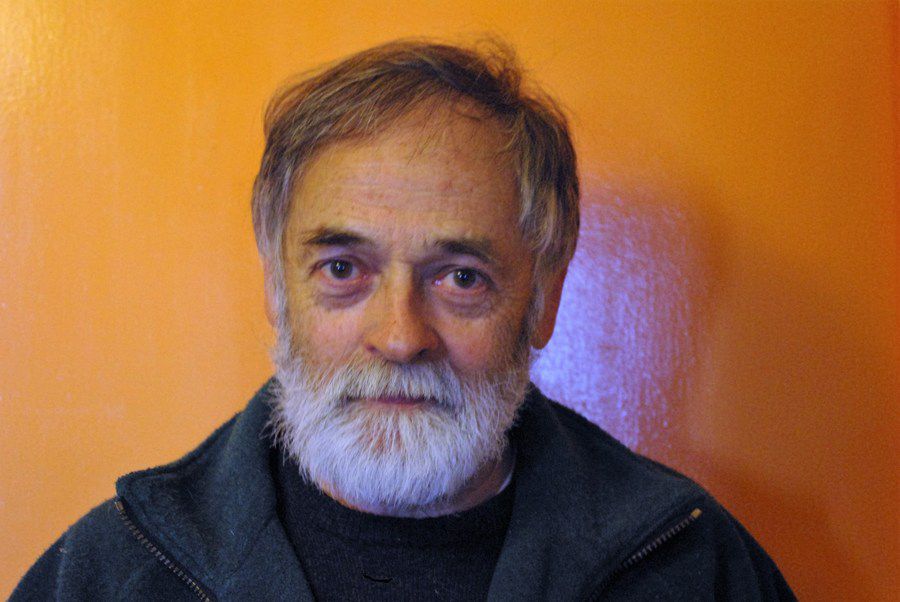
This undated photo shows a portrait of French writer Maxime Vivas. (Xinhua)
Surprised by the rapid changes in Xinjiang, the French writer encouraged young people to share their daily lives on social networks to show the true face of Xinjiang.
"ALWAYS THE TRUTH AND NOTHING BUT THE TRUTH"
"Where does your courage to speak the truth come from in the midst of the Western media hype about Xinjiang?" This is the question of Hurixdam Ablikim, a journalism student, whose goal is to show the real Xinjiang to the world.
"The job of journalists is to reflect realities, whereas in the West, their job is to lie," lamented the veteran journalist. "If I have any advice for you, it is to reveal the truth, always the truth and nothing but the truth."
Vivas said that he had checked everything in his book with "extreme thoroughness." "Not only are there no lies in my book, there are no mistakes," he noted.
After the publication of the book, the writer recalled that there was a media rampage against him, "which is by no means surprising."

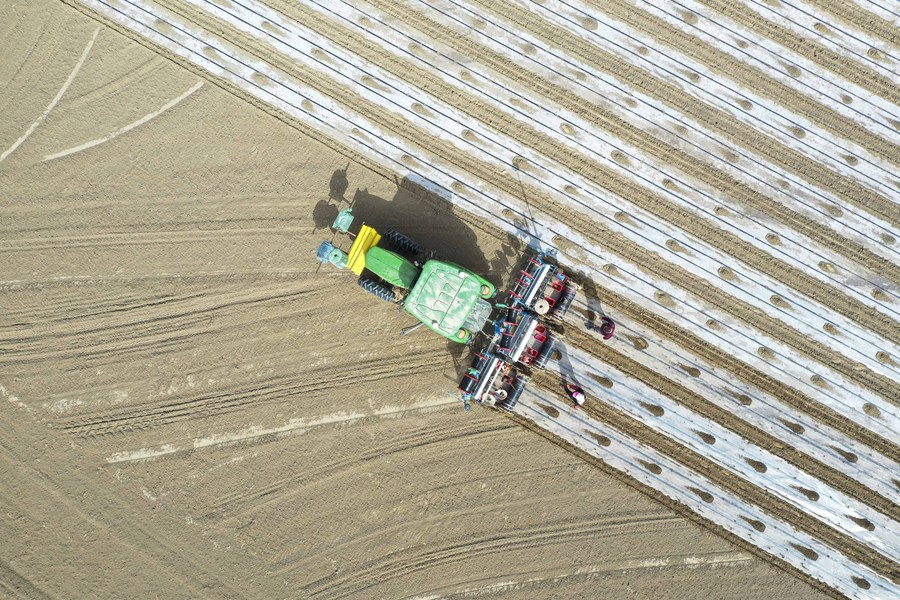
A farm machine works in a field in Yuli County, northwest China's Xinjiang Uygur Autonomous Region, March 28, 2021. (Photo by Wang Zhipeng/Xinhua)
"What I am criticized for is not the content of my book, it is for having written a book that is not an anti-Chinese book," Vivas said.
The writer has declined all interviews with French newspapers. "The media that wanted to interview me all tried to set up a trap for me, and it was always a kind of police interrogation instead of the normal interviews about a book," he said.
He noted now there are a lot of writers and journalists in France who think China as he does, but they cannot speak out "under the media pressure."
"With permanent lies about Xinjiang, people can only see the lies," Vivas said. "I said to myself that maybe we need to reestablish the truth."
In a few months, a book about China written by 15 intellectuals from different countries, edited by Vivas, will be published in France. "This is my way of continuing to work to spread the truth about China," he added.
RAPID PROGRESS IN XINJIANG
"We all feel very happy living in Xinjiang," said Maulanjan Tursun, a food blogger from Kashgar, who asked the writer how he evaluates Xinjiang's development.
"I have visited a lot of countries and regions, but I have not seen such rapid development," Vivas said, noting that Xinjiang's development and progress over the past two years is quite obvious.
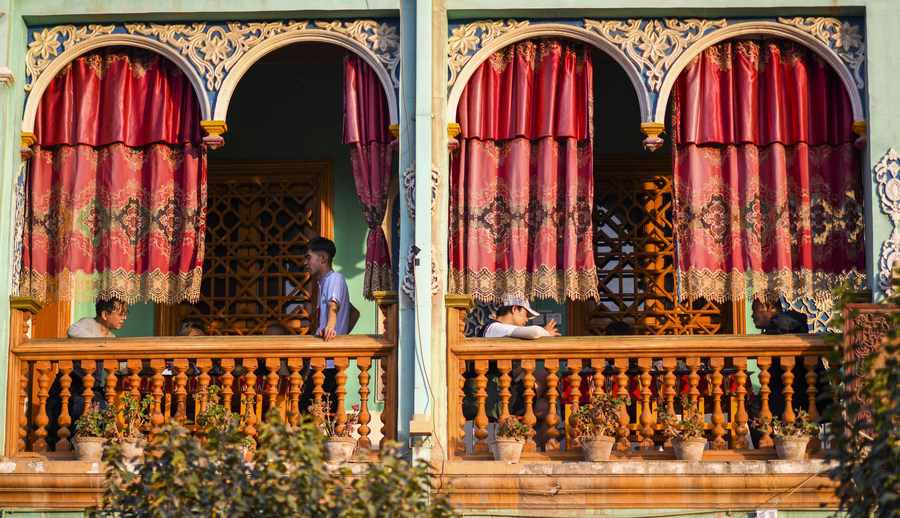
Tourists are seen at a teahouse in the ancient city of Kashgar, northwest China's Xinjiang Uygur Autonomous Region, Sept. 22, 2020. (Xinhua/Zhao Ge)
"This depends on a series of effective policies and measures, and vocational education and training centers have also played an important role in vocational skills training," he said.
The writer also shared what he saw and heard about in Xinjiang with these young people. "I have seen villagers move from mud huts to new homes with access to water, electricity and Internet service."
In his book, Vivas mentioned an encounter with a 41-year-old farmer who, with the help of the local government, had set up a small tracksuit manufacturing business and became the head of the enterprise with 80 employees. With her own income and government scholarships, she sent her son to study abroad.
"I was invited to a family of former nomads where I ate mouton which was presented in a very delicious way. I was amazed by the dance and music performances of Xinjiang, and the architecture of Kashgar is really remarkable too," he added.
The writer expressed the hope that more Westerners will explore this beautiful place by themselves.
"Next time you (Vivas) come to Xinjiang, we will cook you pilaf and noodles," said the young people.
Photos
Related Stories
- Xinjiang's Alataw Pass sees robust rise in China-Europe freight train trips
- Young man dances into spotlight in China's Xinjiang
- New Report: Ins and outs of the lies about Xinjiang
- Harmonious Xinjiang -- Uyghur youth tells real lives of ethnic minority people in China
- "Forced labor" in Xinjiang a false assertion: Xinjiang official
Copyright © 2021 People's Daily Online. All Rights Reserved.







